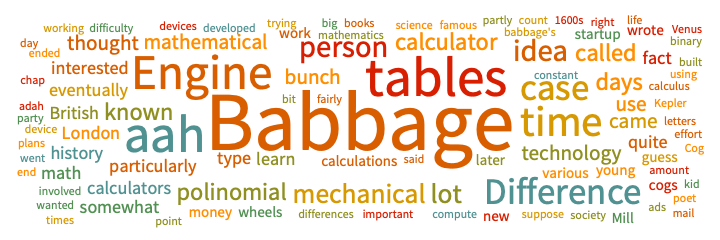History of Science & Technology Q&A:
History of Science and Technology Q&A (April 3, 2024) »
2 hours 12 minutes
✕ close
Is there a directionality to science and technology?
Has anyone sort of applied the hacker mentality to the Antikythera mechanism to figure out what else you could use it for? What kind of uses could a time-traveling von Neumann figure out?
What is the likelihood that ancient tech we've discovered had vastly different uses than what we believe?
Southeast Asia is terrible for archeology because you can make almost anything from bamboo: tens of thousands of years ago, people obviously used wood etc., but only stone remains.
What does that say going forward, with our fast-rotting bits, in contrast with stone or wood, or even paper?
Any thoughts on the ancient dodecahedra? Do you have one?
Who started research on the periodic tables? Can you discuss a bit about its development?
What motivated the advent of the fast Fourier transform algorithm? What was its creator wanting to solve?
How advanced did analog computers get before we moved to digital computers? Was there any debate on whether we shouldn't move to digital at the time?
Why did modern formal logic take so long to develop historically, compared to other branches of mathematics or physical sciences? What explains the delay until the mid-nineteenth century?
Is there any knowledge in physics today that has been influenced by ancient texts like the Vedas etc.?
View Less »

















